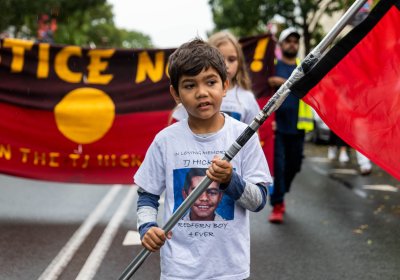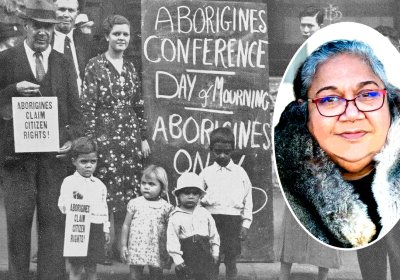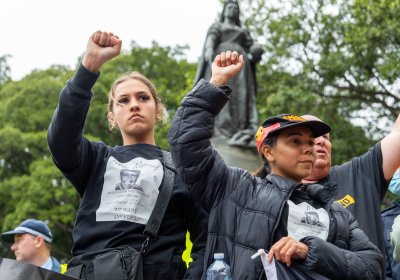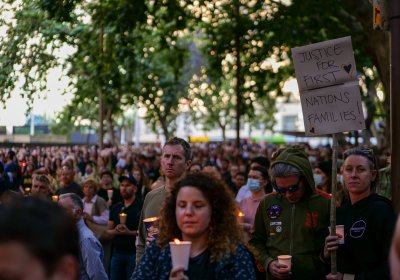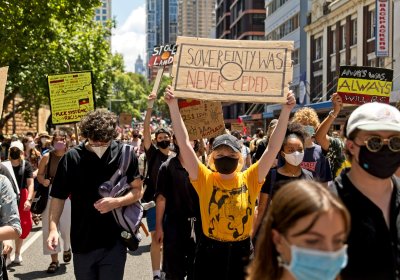Arrernte woman Celeste Liddle who has been engaged in Indigenous and social justice movements for a long time, says she is undecided on her vote. Below she sets out her thoughts.
Voice to parliament
May Day marches were organised in Boorloo/Perth, Gadi/Sydney, Meanjin/Brisbane, Muloobinba/Newcastle, Kombumerri/Gold Coast, Walyalup/Fremantle and Tarndanya/Adelaide. Susan Price, Jim McIlroy, Alex Salmon and Renfrey Clarke report.
Senator Lidia Thorpe should be congratulated for putting a Treaty with First Nations people on the political agenda. Progressives need to support that campaign, argue Jacob Andrewartha and Sue Bolton.
Senator Lidia Thorpe has quit the Greens Party to sit on the Senate crossbench and help build a strong grassroots Blak Sovereign Movement. Ben Radford reports.
For many young people, the fact that modern Australia emerged from a colonial-settler society founded on the violent dispossession of First Nations peoples is a self-evident fact. Sarah Hathway and Sam Wainwright comment on a significant political shift underway.
Tens of thousands of people joined Invasion Day protests around the country on January 26.
Labor's Indigenous Voice to Parliament will be another token gesture, unless the government is forced by a strong popular movement to take real measures towards First Nations justice, argues Socialist Alliance.
Socialist Alliance delegates discussed global and domestic political developments and decided on directions and campaign priorities at its 17th national conference. Chloe DS reports.
Frances Peters-Little, director of Vote Yes For Aboriginies, a film about the 1967 referendum, discusses the political context of the vote and the upcoming referendum on the Voice to Parliament with Isaac Nellist.
History shows that governments have consistently resisted any proposals from First Nations advisory bodies to deliver real justice. Peter Boyle argues that the Voice to Parliament could end up as another token gesture, unless there is a strong and independent movement for First Nations justice.
“In our negotiations with Labor, I’ve asked for their evidence that the Voice will not cede our sovereignty. To date, no one has responded to this request,” Senator Lidia Thorpe told Paul Gregoire.
The proposed Voice to Parliament would mean little “meaningful change” for First Nations people, according to the Tasmanian Aboriginal Centre president Graeme Gardner. Isaac Nellist reports.
- Previous page
- Page 3
- Next page


